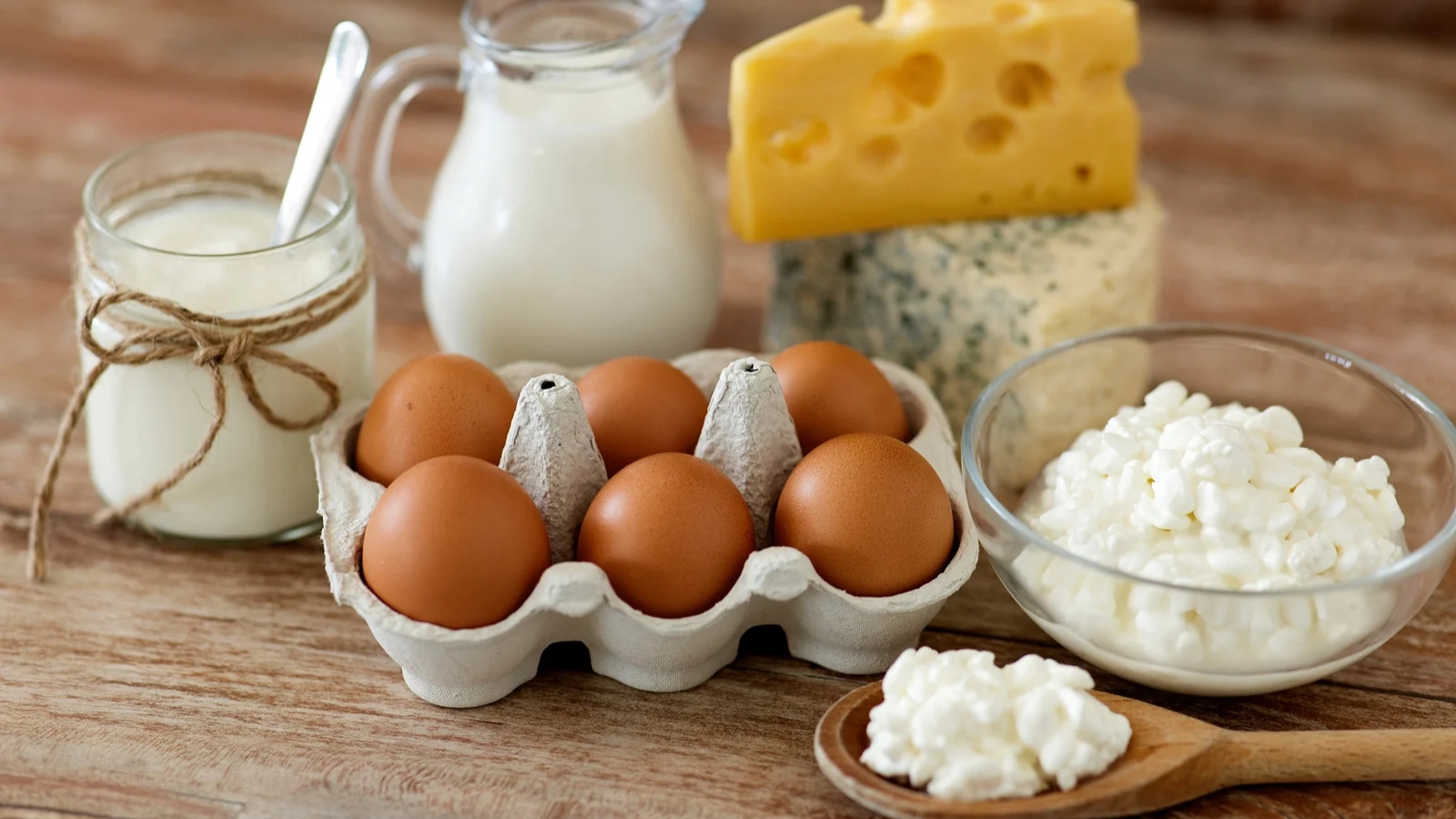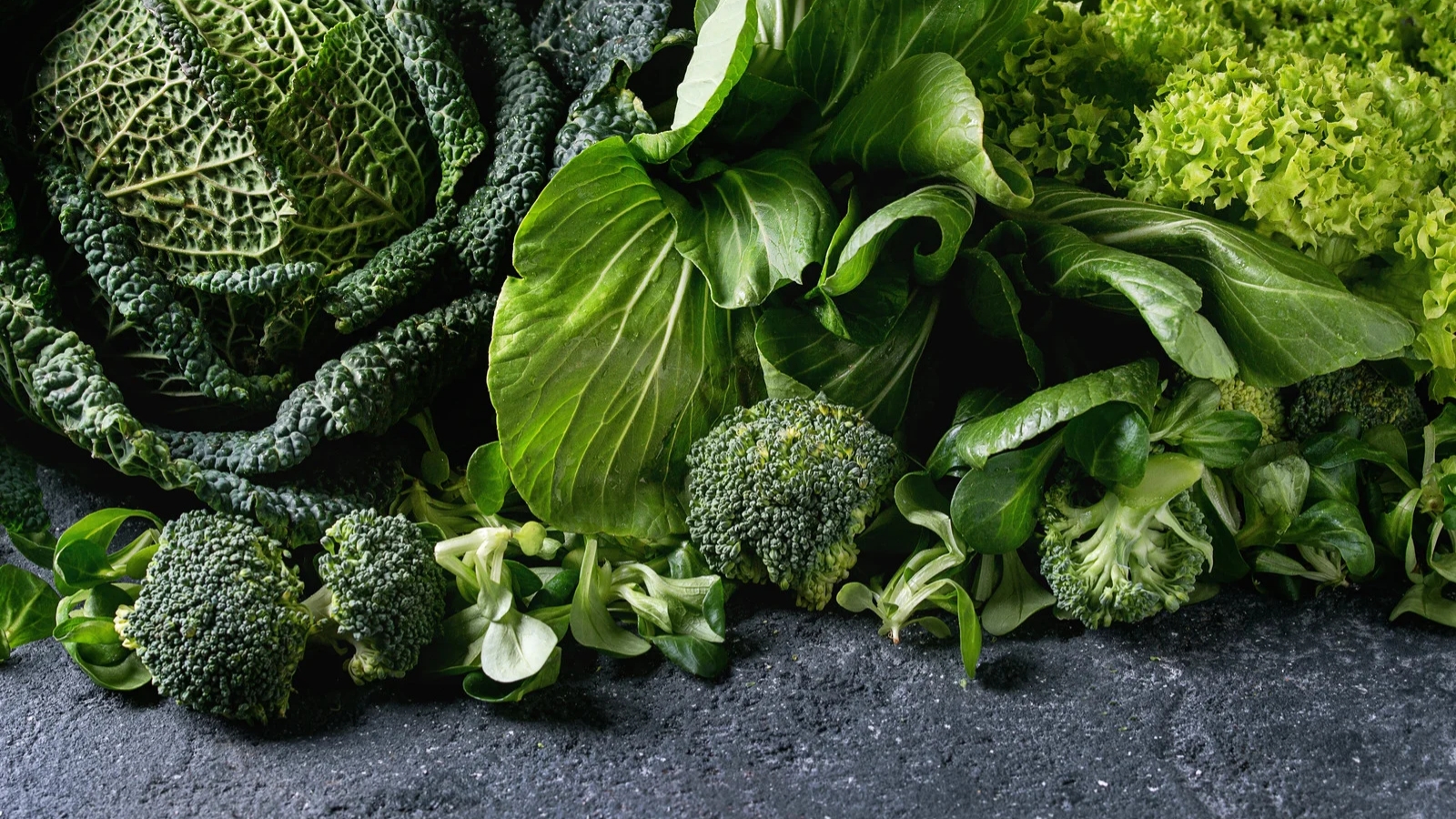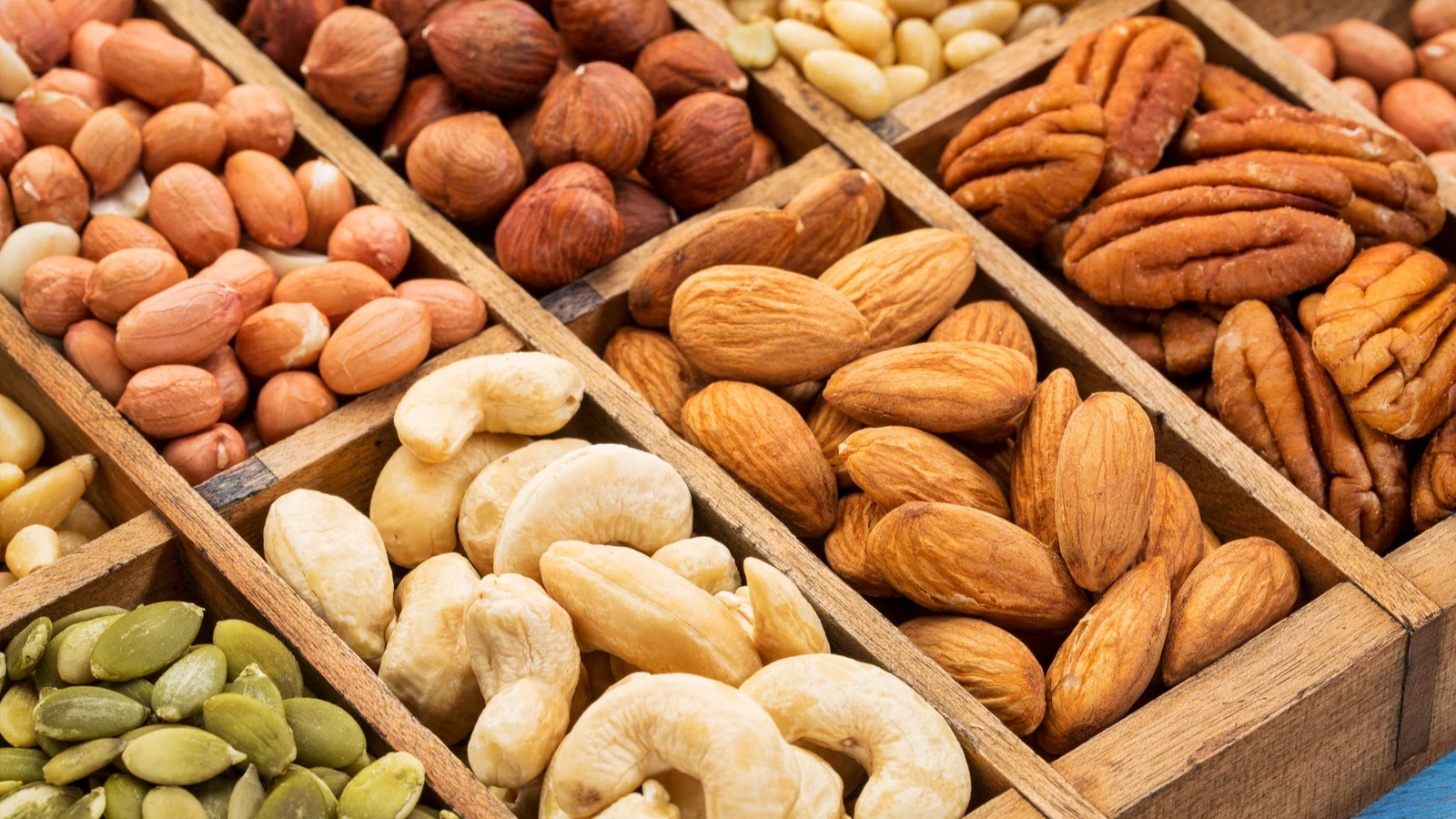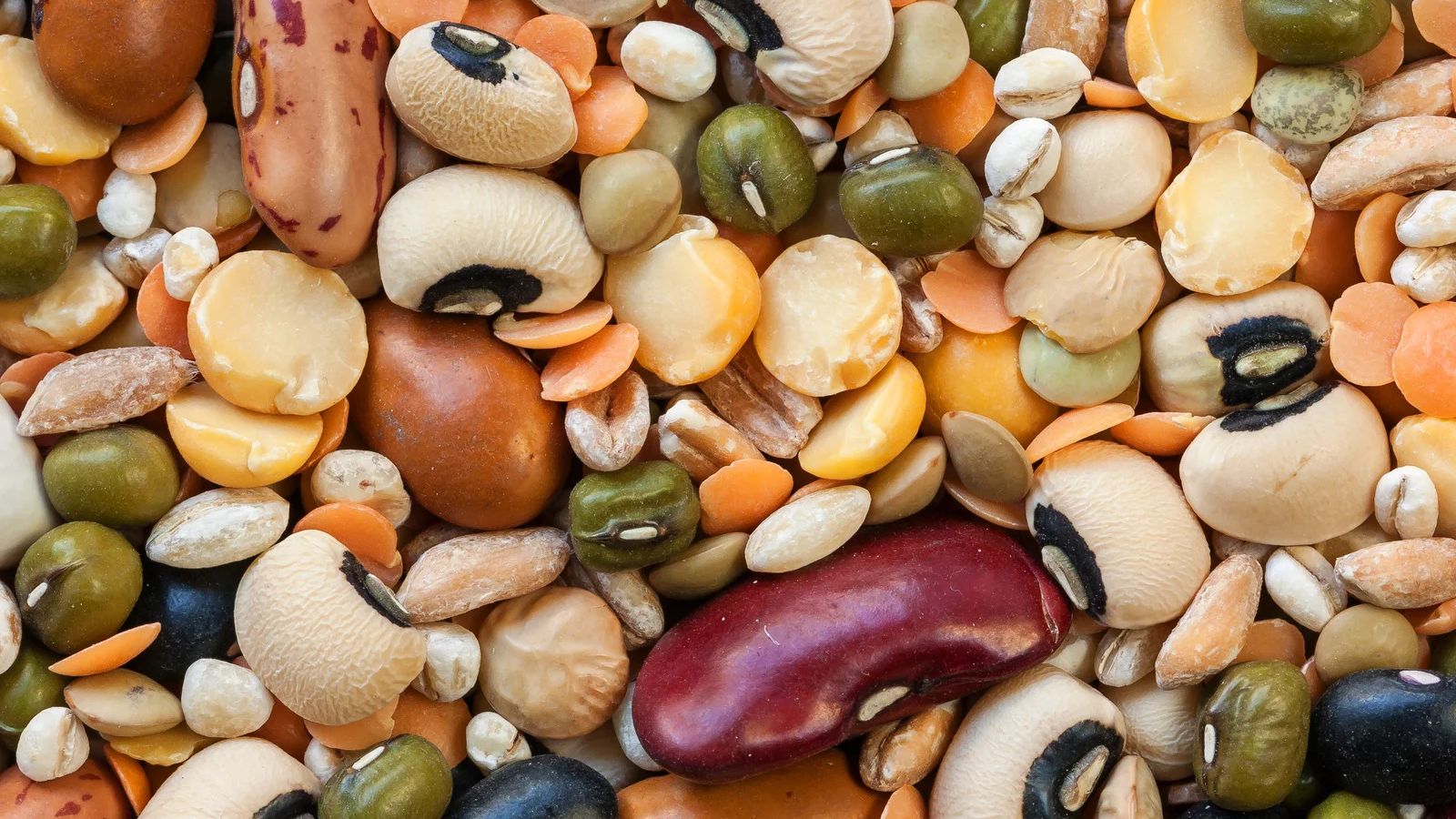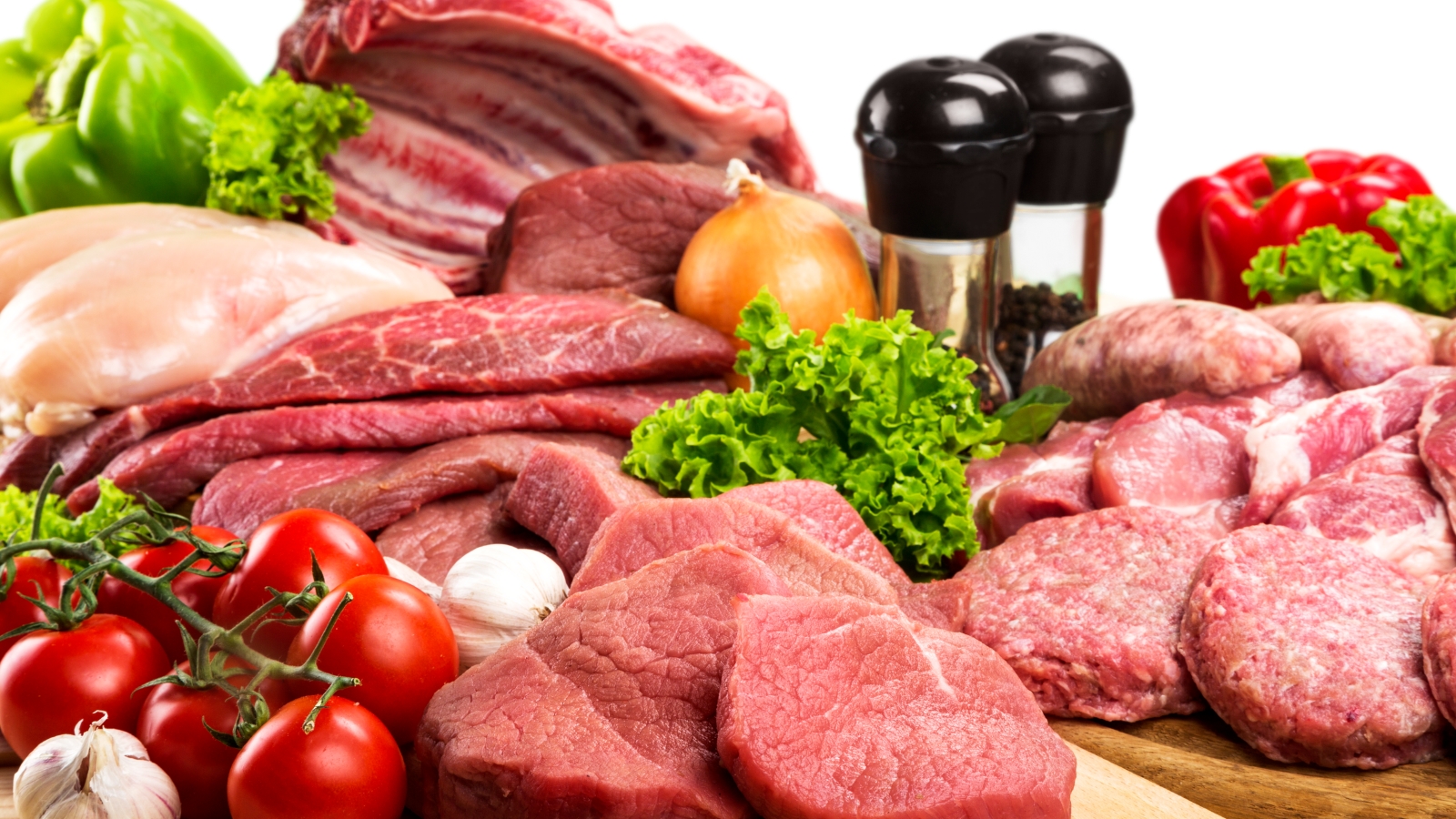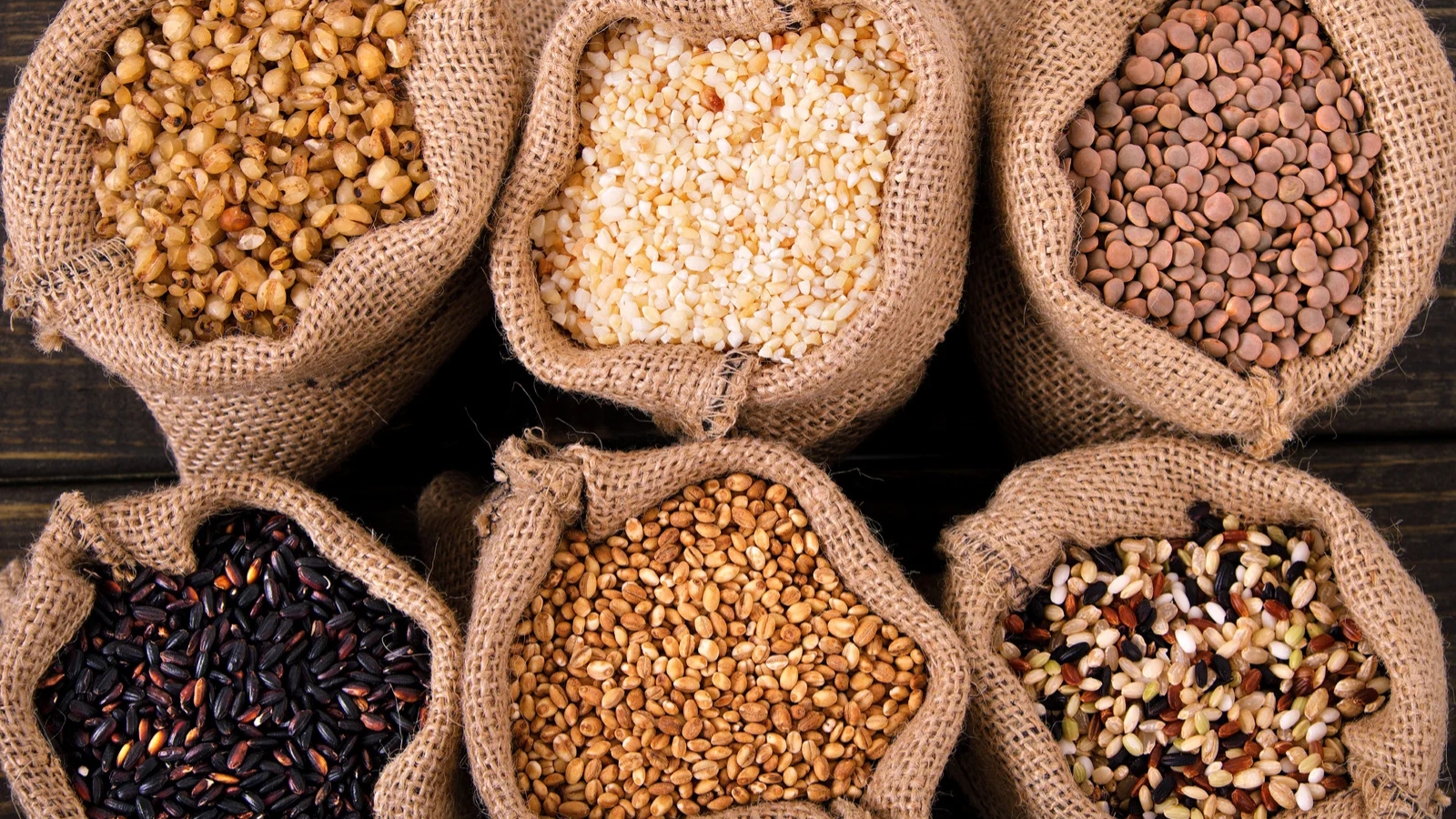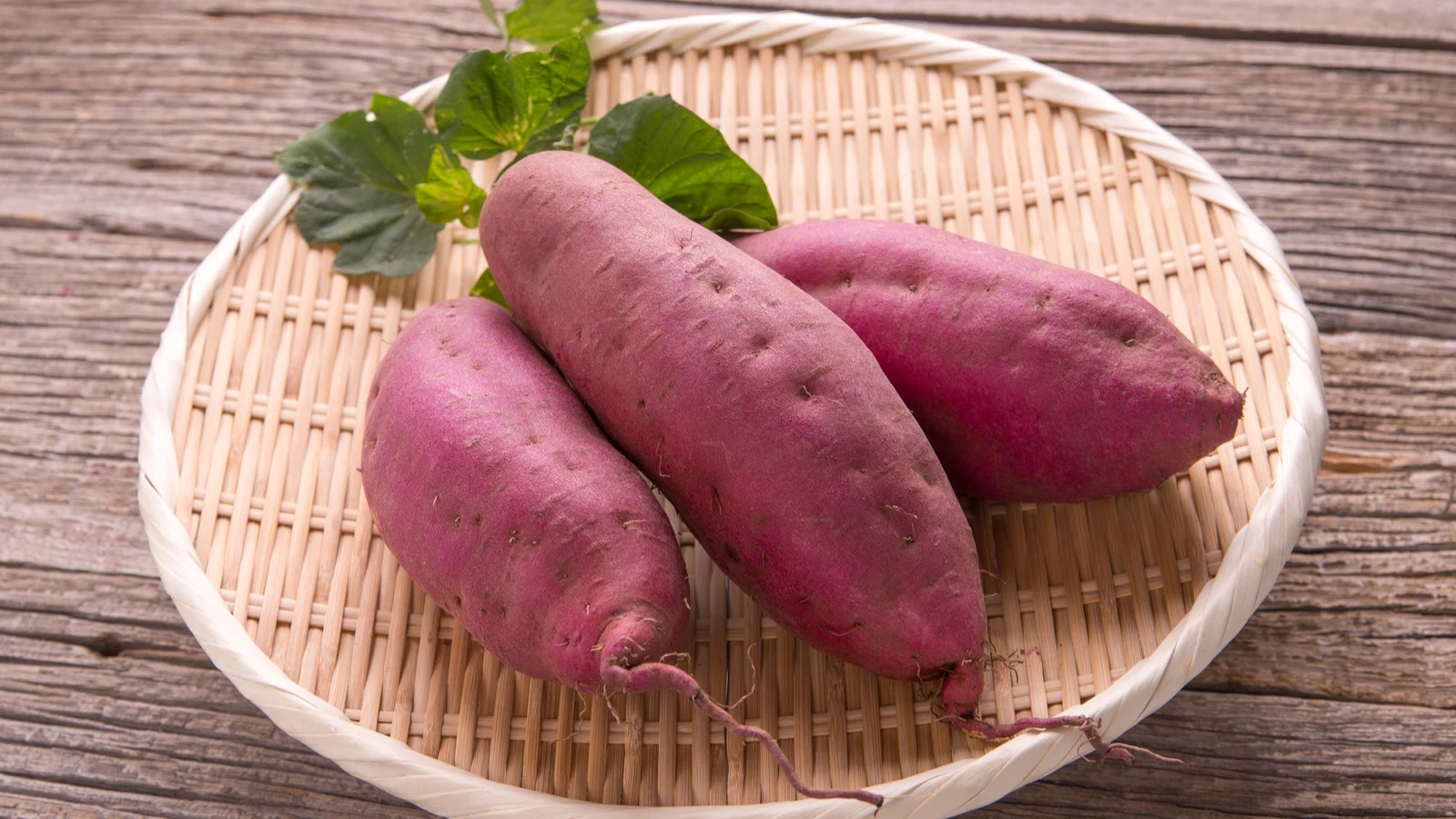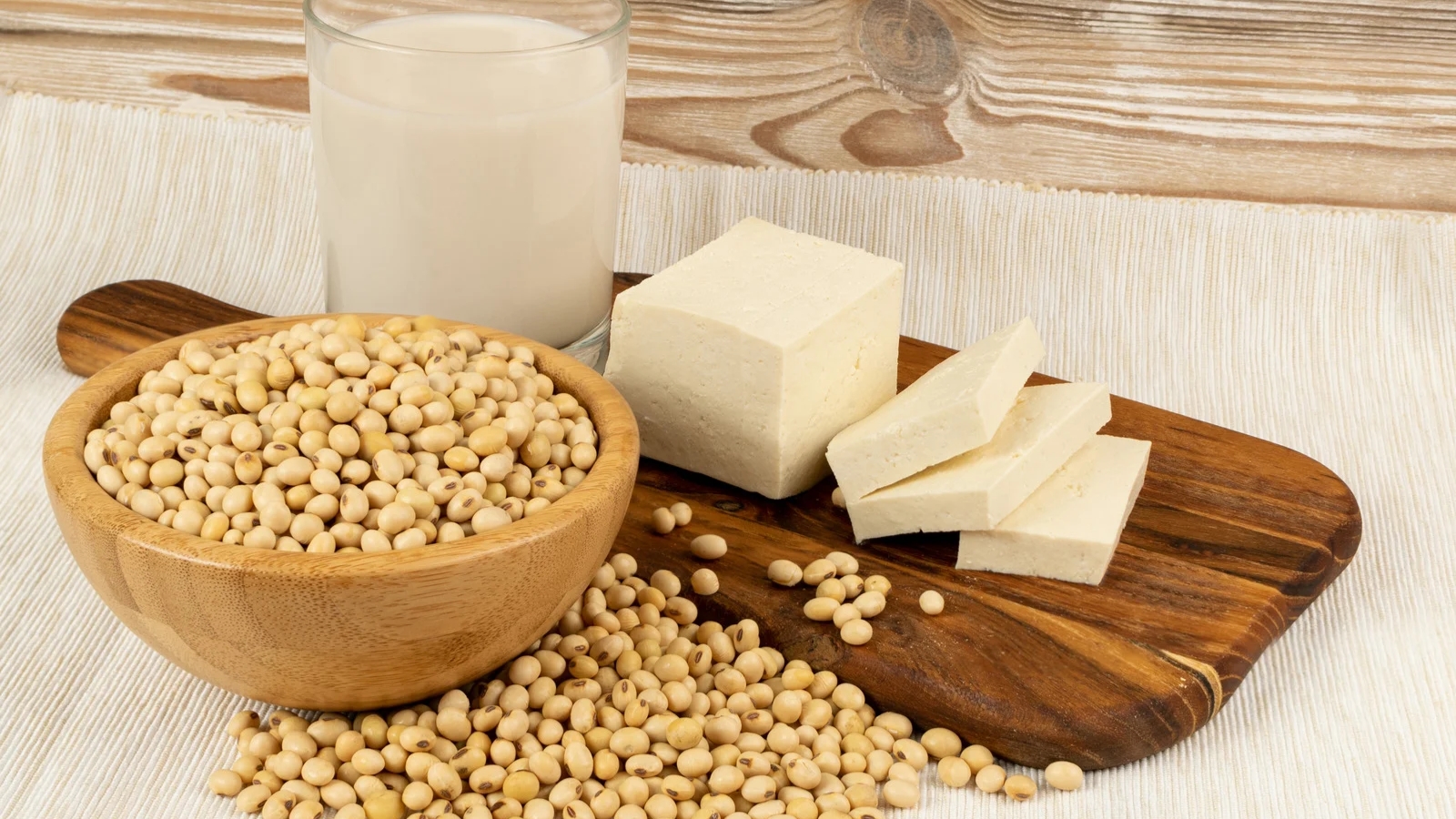Strong bones and healthy joints are essential for daily movement, balance, and overall health. Your body relies on specific nutrients like calcium, vitamin D, and protein to keep them in good condition. Eating the right foods can improve bone density, reduce joint discomfort, and support long-term mobility.
This article explores 13 of the best foods for stronger bones and joints. Each food plays a unique role in providing the nutrients your body needs for structure and flexibility. By including them in your diet, you can help protect your skeletal system and maintain strength as you age.
1. Dairy Products
Dairy products are among the most well-known sources of calcium. Calcium is vital for maintaining bone density. Milk, yogurt, and cheese also provide protein and vitamin D, which help the body use calcium effectively.
Choose low-fat or plain versions to limit excess sugar and saturated fat. If you cannot tolerate dairy, look for fortified alternatives.
2. Fatty Fish
Fatty fish such as salmon, sardines, and mackerel are rich in vitamin D and omega-3 fatty acids. Vitamin D improves calcium absorption, while omega-3s reduce inflammation that can affect joints.
Regular servings of fish can help support bone strength and joint flexibility. Canned options like sardines also contain small edible bones that add extra calcium.
3. Leafy Green Vegetables
Leafy greens such as kale, spinach, and bok choy are valuable sources of calcium, magnesium, and vitamin K. These nutrients all play a role in bone formation and strength.
Greens are also rich in antioxidants, which help protect joint tissues from oxidative stress. Aim to include at least one serving in your meals each day.
4. Eggs
Eggs provide vitamin D in their yolks, along with protein that helps maintain muscle mass around bones and joints. Muscle support is essential because it reduces stress on the skeletal system.
One egg a day can contribute to your vitamin D intake, though combining eggs with other foods on this list will help you meet your daily needs more effectively.
5. Nuts and Seeds
Nuts and seeds supply calcium, magnesium, and healthy fats that protect joint health. Almonds, chia seeds, and sesame seeds are exceptionally high in calcium. Walnuts and flaxseeds are good sources of omega-3 fatty acids.
Include small portions daily to boost mineral intake without consuming excess calories. Nut butters and seed toppings also make convenient additions to meals.
6. Legumes
Beans, lentils, and chickpeas are packed with protein, magnesium, and fiber. Magnesium supports bone structure, while protein builds the tissues around joints.
Legumes are also budget-friendly and versatile, making them easy to incorporate into soups, salads, and main dishes. Their nutrient density supports long-term skeletal health.
7. Fortified Foods
Some foods are fortified with calcium and vitamin D to help meet daily requirements. Options include fortified cereals, plant-based milks, and certain juices.
These products are beneficial if you avoid dairy or have difficulty getting enough vitamin D from sunlight. Always check labels to confirm nutrient content.
8. Lean Meats and Poultry
Lean meats and poultry provide high-quality protein, zinc, and phosphorus. These nutrients are essential for maintaining bone structure and supporting collagen production in joints.
Choose lean cuts and prepare them with minimal added fats. Consistent intake helps maintain muscle support for bones and reduces wear on joints.
9. Whole Grains
Whole grains like brown rice, quinoa, and oats deliver magnesium, phosphorus, and fiber. Magnesium helps regulate vitamin D activity, while phosphorus contributes to bone mineralization.
Whole grains also support digestive health, which improves nutrient absorption. A varied diet of grains ensures you get a balance of key minerals.
10. Berries
Berries contain antioxidants and vitamin C. Vitamin C is necessary for collagen production, which strengthens joint tissues and maintains flexibility.
Regular consumption of strawberries, blueberries, and raspberries helps reduce oxidative stress, which can otherwise weaken bones and joints. A serving a day provides a protective benefit.
11. Sweet Potatoes
Sweet potatoes are high in vitamin A, magnesium, and potassium. Potassium helps balance sodium in the body, which supports bone mineral density. Magnesium assists with the structural development of bones.
These tubers also provide fiber, making them a nutrient-rich carbohydrate option that contributes to skeletal health.
12. Tomatoes
Tomatoes contain lycopene, an antioxidant that supports joint tissues. They are also a source of vitamin C, which aids in the formation of collagen.
Including tomatoes in your diet through sauces, salads, or soups can provide steady support for joint flexibility and bone strength. Cooking tomatoes enhances lycopene availability.
13. Soy Foods
Soy-based foods such as tofu and soy milk are strong sources of calcium and protein. Many soy products are fortified with vitamin D, making them especially useful for bone health.
Tofu prepared with calcium sulfate delivers higher calcium levels. Soy protein also helps maintain lean muscle, which is essential for supporting joint function.
Conclusion
Strong bones and joints rely on consistent intake of nutrients like calcium, vitamin D, magnesium, protein, and antioxidants. The foods listed above work together to support bone density, joint flexibility, and long-term mobility. By combining different sources, you can cover all key nutrients without depending on a single food.
Including these 13 foods in your regular meals can help you maintain a healthy skeletal system throughout life. Balanced choices and variety are the most effective way to protect your bones and joints for the future.

